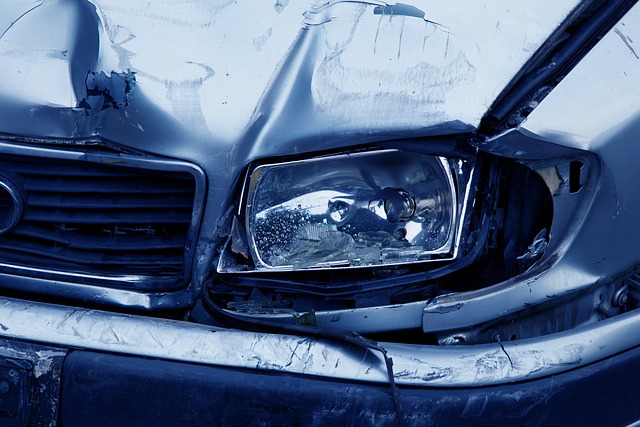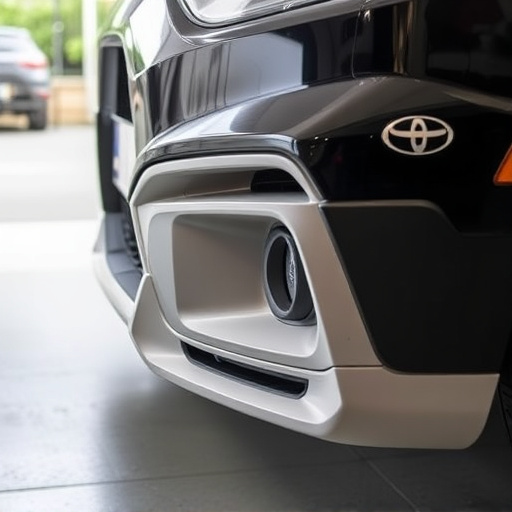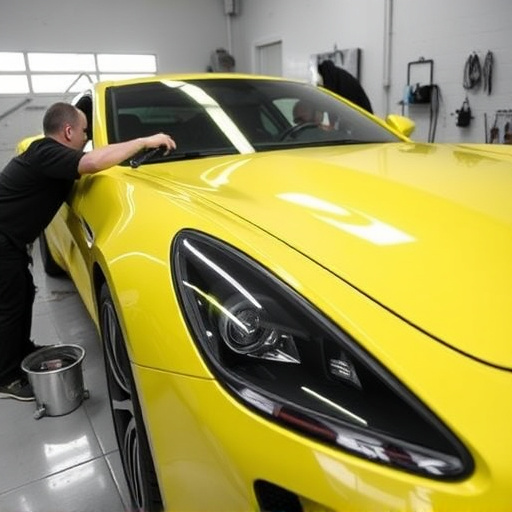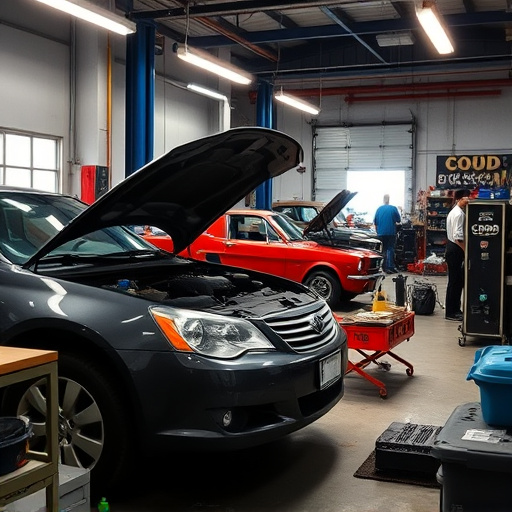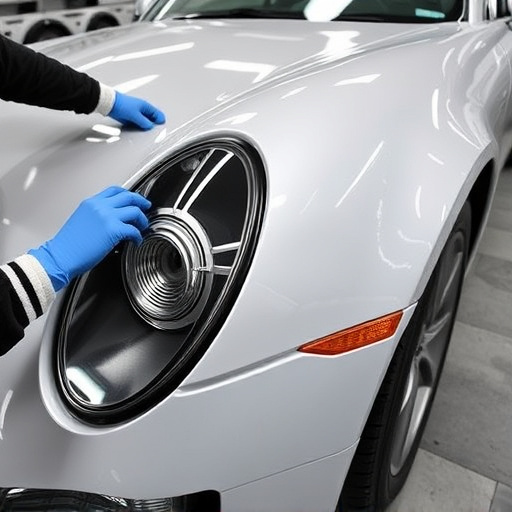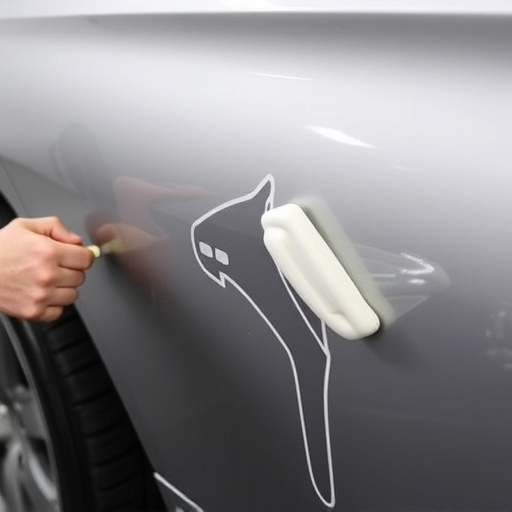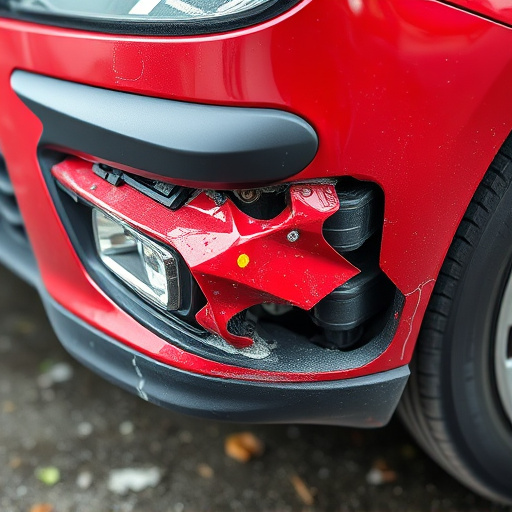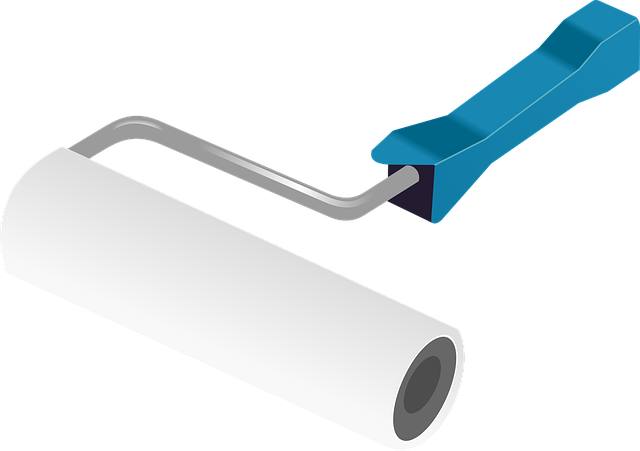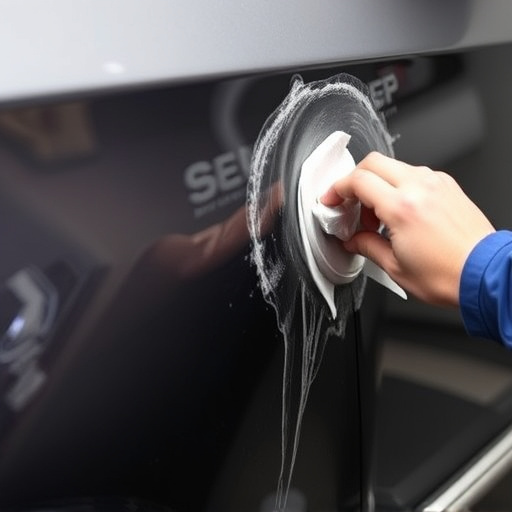Frame repair certification is a legal requirement in many jurisdictions to ensure auto technicians have the skills and knowledge to perform safe and accurate frame repairs, maintaining vehicle structural integrity and consumer protection, boosting industry standards, fostering trust, and enhancing customer satisfaction through consistent quality assurance.
In today’s automotive industry, understanding frame repair certification requirements is crucial for both professionals and consumers. This article delves into the legal obligations surrounding frame repair certification, exploring why it’s more than just a recommendation—it’s a vital safety measure. We’ll discuss how these certifications ensure quality assurance, protect consumers, and foster trust among automotive restoration professionals. By the end, readers will grasp the significance of frame repair certification in maintaining safe and reliable vehicles.
- Understanding Frame Repair Certification Requirements
- Legal Obligations for Professionals in Automotive Restoration
- Benefits of Having Framework for Safety and Quality Assurance
Understanding Frame Repair Certification Requirements

The need for a frame repair certification has evolved over time, driven by safety standards and consumer protection. Today, many jurisdictions require automotive technicians involved in structural repairs, including frame straightening and autobody repairs, to be certified. This is particularly crucial given the complexity of modern vehicle designs and the critical role frames play in ensuring vehicle safety.
Frame repair certification ensures that professionals performing these tasks possess the necessary skills and knowledge to accurately assess damage, correctly perform vehicle dent repair, and restore structural integrity without compromising safety. It’s a key component in maintaining the quality and reliability of autobody repairs, ultimately safeguarding drivers and passengers.
Legal Obligations for Professionals in Automotive Restoration

In the realm of automotive restoration, professionals have legal obligations to uphold when it comes to frame repair certification. This is a critical aspect of ensuring consumer safety and the integrity of vehicle repairs. Many countries and regions have established standards and regulations that mandate specific training and qualifications for individuals engaging in car repair services, particularly in collision repair or vehicle paint repair. One such key requirement is often obtaining a frame repair certification, which demonstrates expertise in handling structural damage to vehicles.
The need for this certification arises from the complexity of modern vehicle designs and the importance of precise frame alignment during restoration. Professionals must possess the skills to accurately assess, measure, and correct frame misalignments, ensuring the safety and stability of the vehicle post-repair. Compliance with these legal obligations not only protects consumers but also fosters trust in the automotive restoration industry, promoting high-quality collision repair services across the board.
Benefits of Having Framework for Safety and Quality Assurance

Having a structured framework for safety and quality assurance in frame repair is invaluable for several reasons. It ensures that auto body shops maintain consistent standards, reducing the risk of errors or subpar work. This is particularly crucial in the auto body repair industry, where mistakes can have significant implications for vehicle safety. A well-established framework allows technicians to follow specific guidelines, ensuring every repair meets the required safety standards and performs optimally.
Additionally, this certification promotes customer trust and satisfaction. When an auto body shop displays frame repair certification, it signals to clients that they are dealing with a reputable business committed to excellence. This transparency can lead to better retention rates and positive word-of-mouth recommendations for vehicle dent repair or auto body services, fostering a reliable reputation for the entire auto body shop.
While there may not be strict legal mandates requiring frame repair certification across all regions, obtaining such certification is beneficial for automotive restoration professionals. It ensures a standardized framework for safety and quality assurance, fostering trust among customers. By adhering to industry standards and best practices outlined in frame repair certifications, technicians can demonstrate competence, mitigate risks, and ultimately contribute to the longevity of restored vehicles.




